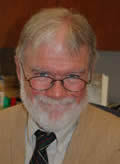
Notre Dame theologian Gary Anderson, an Old Testament scholar, recently wrote about purgatory. He delved into how the doctrine of purgatory — sometimes disparaged as a spurious medieval contrivance to sell indulgences, other times accepted as a theologically appealing but scripturally warrantless idea — has deep biblical roots.
I read it late last Saturday night, after a day spent raking up the first autumnal deposit of dead leaves from our front and back yards. November is the Month of the Dead, of All Souls Day, of the Día de los Muertos in Mexico and Latin America, of the last days in the liturgical calendar, of leaves dying and lying bright, glorious and frosted on the ground. November seemed an appropriate time to read about purgatory and to be grateful for the reassurance that a cleansing was possible between death and endless life. Reassurance indeed: Living forever as the person I now am seemed at least as horrifying a prospect as what the poet Philip Larkin called “unresting death.”
Unresting or not, death had been an insistent presence already this month. At the hospital bedside of an old friend, at the nursing home where my father-in-law wound down his days, in the obituaries I’d written at work, in the wrinkled and washed-out features that stared dully from the mirror as I’d brushed my teeth that morning.
Early Sunday morning I arose, aching all over from Saturday’s yard work, brewed coffee and stood in the front door of our house, facing east and marveling at the absolute absence of breeze. The ascending steam from the coffee cup was utterly vertical, untroubled by so much as a breath of wind.
I looked for a while at the paisley windrows of dead leaves I’d raked and banked on the roadside the day before, and I prayed for the dearest of my dead and dying, for the heart to face the hour of my own death, and for the grace of a gentle judgment. Everything, I thought, even this moment, will die in time, as those I love and those I must learn to love and I myself must die.
Then, engulfing and absorbing that thought, the stillness of the morning surged up around the crow caws from a backyard thicket, as each sienna oak and golden maple leaf fell plumb straight to an increasingly strewn front lawn, steadily and audibly piling. The dead leaves kept falling faster than sight could keep up with, accentuating the sharp glint of dawn and streaking the azure sky in the east.
It seared the eyes and forced tears, this light far too fierce to look at long, but far too fine to look away from.
I knew it was a light proffered from purgatory’s flame.
Anderson writes about purgatory in the November issue of First Things. Subscribers can read it online, and nonsubscribers should be assured that the regular appearance of essays like Anderson’s is why First Things is a magazine very much worth subscribing to.
Michael Garvey is Notre Dame’s assistant director of public relations. Email him at garvey.2@nd.edu.